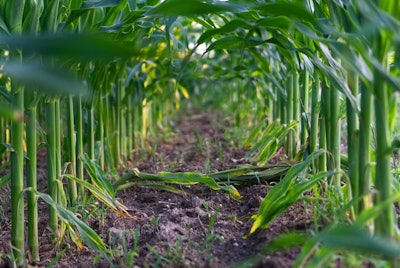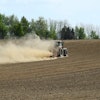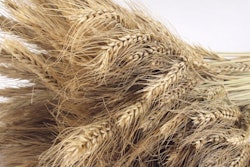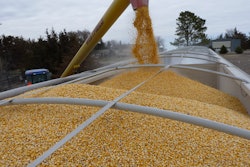
Reuters Trade Estimates See U.S. Corn & Soy Production Falling
Reuters released their analyst estimates for the USDA’s January WASDE. The Crop Production and Winter Seedings report is scheduled for release this Friday, Jan 10.
Corn: Analysts are predicting that production will decline by 148 million bushels (MBU) to 13.513 BBU as yields and harvested acres fall from the December WASDE.
Corn Ending Stocks: Analysts expect that 19/20 corn stocks will fall by 153 MBU to 1.757 billion bushels.
Soybeans: Analysts are predicting that production will decline by 38 million bushels (MBU) to 3.512 BBU as yields and harvested acres fall from the December WASDE.
Soybean Ending Stocks: Analysts expect that 19/20 soybean stocks will fall by 51 MBU to 424 MBU bushels.
Winter wheat acres: Analysts are predicting that HRW acres will fall by 495,000 acres from 2019 while SRW acres will fall by 83,000 acres.
Soybean Ending Stocks Analysts expect the all-wheat stocks to decline by 5 MBU to 969 MBU.
FBN’s Take On What It Means: At FBN, we believe that if the analysts production and ending stocks estimates are realized, the markets should find support for corn and soybean prices. While both corn and soybean ending stocks are not historically “tight” we believe that they are directionally correct and provide an interesting point for the second half of the 2019/20 marketing year. We believe that the HRW wheat seedings are another leg in a multi-year shift away from U.S. wheat production and can be supportive of prices.
Dryness Impacting Brazil Corn Crop
Brazil's Rio Grande do Sul, the country's 3rd largest grain producing state, reported that its summer corn crop will have problems due to dryness.
Some production estimates to be lowered by 6 million tonnes (MT).
Brazil's government expects the first corn crop to reach 26 MT and the second crop at 71 MT for a total of 97MT.
Brazil has produced back-to-back 101 MT crops.
Brazil produces 2 crops each year.
Rio Grande do Sul is one of the few Brazilian states that plants most of the corn in the summer. Most of the country plants corn during the winter which leaves soybeans as the primary summer crop.
FBN’s Take On What It Means: At FBN, we believe that the recent dryness which is stressing Brazil’s first corn crop can be positive for the U.S. farmer. If production continues to contract we believe that some of Brazil’s corn export business could shift back to the U.S. which could be a positive for U.S. corn.
The risk of trading futures, hedging, and speculating can be substantial. FBN BR LLC (NFA ID: 0508695)










